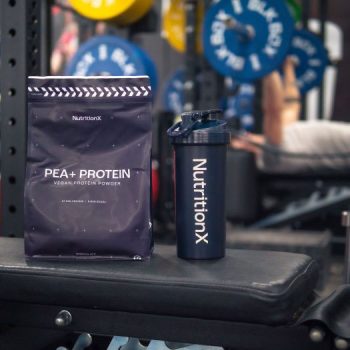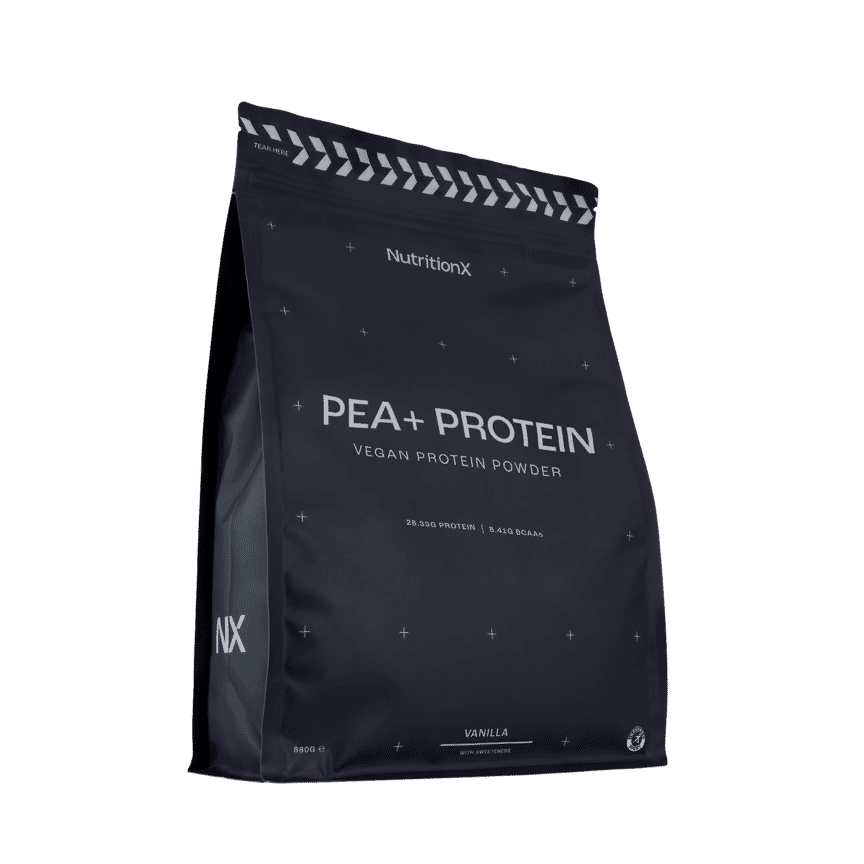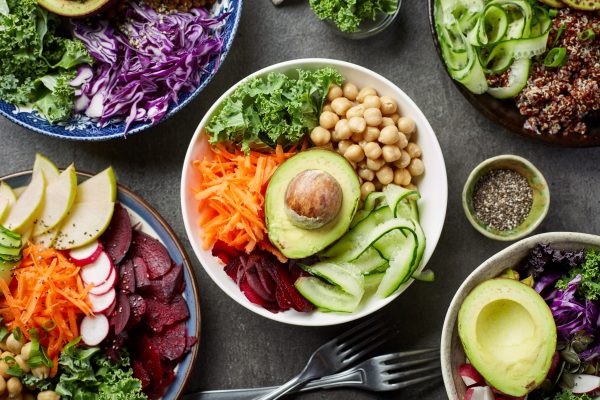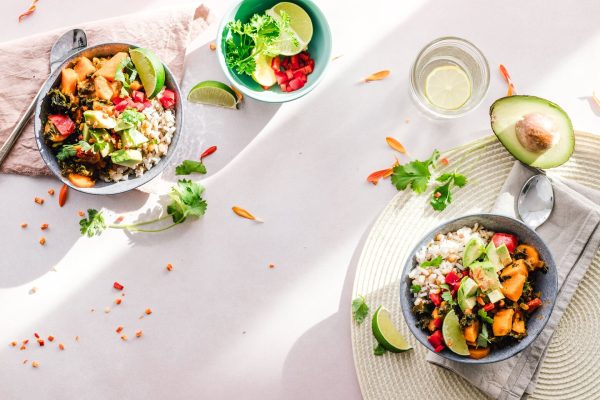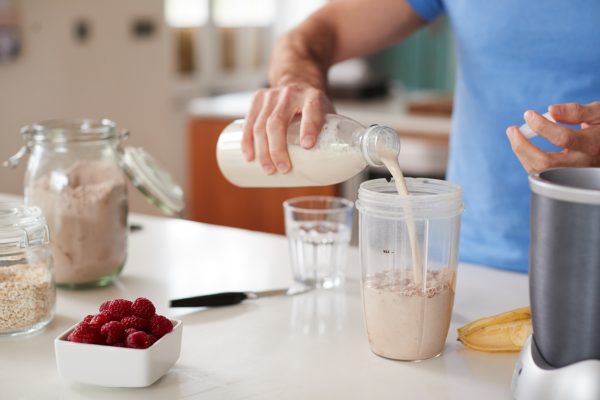For athletes on a vegan diet, or simply cutting back on animal products, a common question arises: can I get my protein requirements from plant sources? The short answer is yes, provided you choose wisely and understand how plant proteins differ from their animal counterparts.
But how do plant-based proteins stack up nutritionally, and how can athletes use them as an effective part of their nutrition strategy?
What is plant-based protein?
Plant-based protein refers to protein derived from plants, including legumes (peas, lentils, beans), grains (rice, quinoa, oats), nuts, seeds (hemp, chia, pumpkin) and newer sources like mycoprotein or algae. Proteins are made up of amino acids, nine of which are essential, meaning the body cannot synthesise them and they must be obtained through diet.
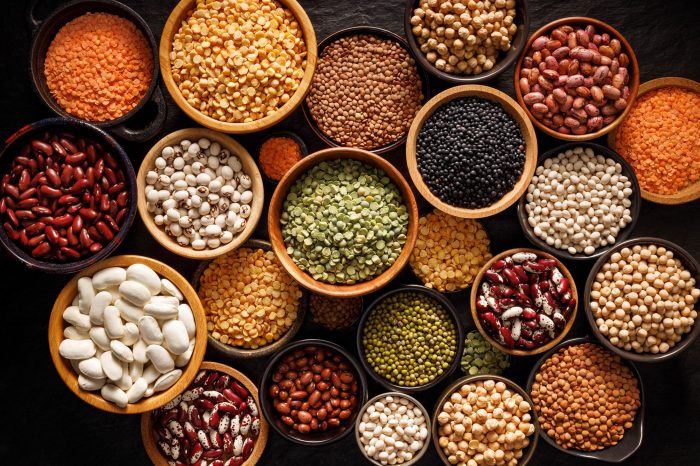
What are the benefits of plant-based protein?
Plant proteins come naturally packaged with fibre, vitamins, minerals and phytonutrients. However, they also contain compounds such as phytates and tannins that can reduce the digestibility and absorption of protein and minerals. Processing methods such as soaking, sprouting, fermenting or isolating the protein can improve digestibility and nutrient absorption (FAO, 2013).
In general, plant proteins tend to have a lower digestibility score than animal proteins, but high-quality plant sources and combinations can easily meet human protein needs.
What are the best plant based proteins?
The best plant-based proteins depend on what you value most, whether it be amino acid completeness, digestibility or additional nutrients. Some of the best plant-based protein powders include:
- Soy protein
Soy is one of the few plant proteins considered “complete.” It has a high protein content, contains all essential amino acids, and is rich in leucine; an amino acid crucial for triggering muscle protein synthesis. Soy foods (tofu, tempeh, edamame) and soy protein isolate have been shown to support muscle gain comparably to animal proteins when intake is matched (Nichele et al., 2022). - Pea protein
Extracted from yellow split peas, pea protein - like our Pea+ Protein -is naturally rich in branched-chain amino acids (BCAAs), leucine, isoleucine, valine and lysine, but slightly lower in methionine. It’s highly digestible and hypoallergenic, making it a popular alternative for those avoiding soy or dairy. - Rice protein
Rice protein is rich in methionine but lower in lysine, so it pairs well with pea protein to form a more complete amino acid profile. It’s easily digested and gentle on the stomach. - Hemp protein
Hemp seeds provide a balanced mix of omega-3 and omega-6 fatty acids along with protein and fibre. Hemp protein contains all essential amino acids, although in slightly lower concentrations than soy or pea. Its nutrient density makes it a good all-rounder for general health rather than pure muscle building. - Pumpkin seed, chia, and flax proteins
These are nutrient-rich, offering healthy fats, minerals like magnesium and zinc, and useful amounts of protein. Whilst not complete proteins on their own, they make excellent additions to a mixed diet. - Mycoprotein
Derived from fungal biomass, mycoprotein is a complete protein with a high fibre content and a texture similar to meat. Studies show it supports muscle protein synthesis effectively (West et al., 2023).
Blending these sources, for example pea with rice, or hemp with pumpkin seed, can optimise amino acid profile.
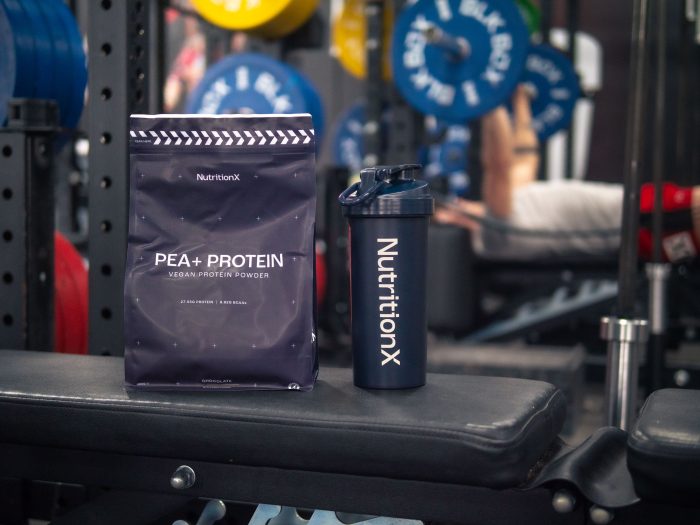
What is the difference between plant-based and animal protein?
In short, animal proteins are slightly more efficient, but plant proteins can match them for muscle repair and growth when consumed in the right quantities and combinations.
Both plant and animal proteins provide essential amino acids, but in different proportions and with differing bioavailability. Animal proteins such as meat, eggs and dairy are considered “complete”, containing all nine essential amino acids in sufficient amounts. Many plant proteins, however, are lower in one or more essential amino acids (for example, lysine is limited in grains, whilst methionine tends to be lower in legumes) (Gorissen & Witard, 2018). Combining foods such as rice and beans, or oats and lentils, helps to create a complete amino acid profile.
Animal proteins are also typically more digestible, with 90–95% of the protein absorbed. Plant proteins often range from 70–90%, though isolates and concentrates can reach higher levels (Phillips et al., 2023).
Whilst animal protein is efficient, it can come with higher levels of saturated fat and cholesterol. Plant proteins bring fibre, antioxidants and beneficial plant compounds that support heart health and metabolic balance. Studies show that replacing some animal protein with plant protein can reduce the risk of chronic disease and mortality (Song et al., 2016).
Which plant-based foods are naturally highest in protein?
Among whole foods, legumes and pulses are some of the richest natural sources of plant protein. Lentils, chickpeas, black beans and kidney beans typically provide around 8–9g of protein per 100g cooked. Soy-based foods such as tofu, tempeh and edamame are even higher, offering 10–20g per 100g depending on preparation, and they contain all nine essential amino acids. Seitan, made from wheat gluten, is another standout, packing around 25g of protein per 100g, though it is unsuitable for those avoiding gluten.
Quinoa is unique among grains for being a complete protein, delivering about 4g per 100g cooked, whilst buckwheat and amaranth also score well. Nuts and seeds, particularly hemp, pumpkin and chia, add between 5 and 9g of protein per 30g serving along with healthy fats and minerals. Together, these foods form the backbone of a high-protein plant-based diet and, when eaten in combination, provide a full spectrum of essential amino acids for muscle maintenance and recovery.
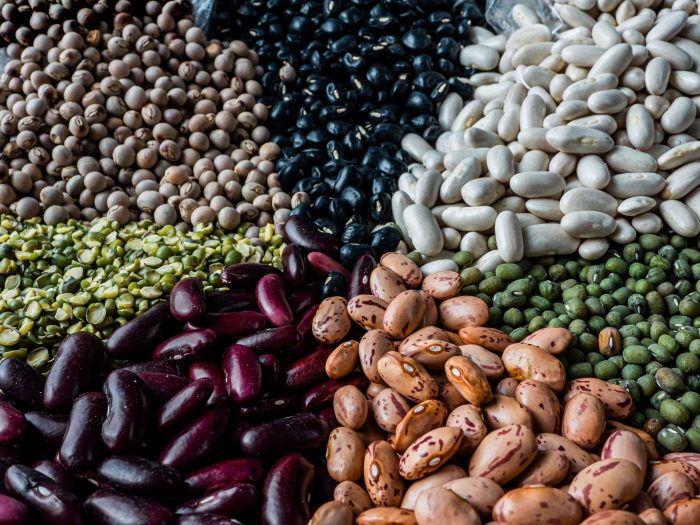
Is there more protein in animal-derived products than plant-based?
Per gram, animal foods are often more protein-dense. For example, 100g of cooked chicken provides around 30g of protein, whereas the same weight of cooked lentils offers about 9g. This difference comes down to water, fibre and carbohydrate content. However, concentrated plant protein sources, such as soy, pea or rice protein powders, can provide 70–90% protein by weight; similar to whey or casein.
Can you get enough protein from plants?
Yes. Multiple studies confirm that plant-based diets can meet protein requirements for both health and performance, provided total intake is adequate (Lynch & Johnston, 2021). For most adults, a target of 1.6–2.2g of protein per kilogram of bodyweight per day supports muscle maintenance and growth. Vegans and vegetarians may benefit from aiming toward the higher end (around 10–20% more) especially for athletes or older adults, to offset slightly lower digestibility.
Should athletes have plant-based or whey protein?
Whey protein remains the benchmark for rapid absorption and high leucine content, but well-formulated plant proteins can perform well for athletes needing to hit protein targets. Research shows that when total protein and leucine content are matched, plant proteins like soy or pea can stimulate muscle protein synthesis to a similar degree as whey (Phillips et al., 2023).
Athletes who prefer plant proteins for ethical, environmental, or digestive reasons can confidently use them; the key is ensuring sufficient intake and amino acid balance.
What is the best plant-based protein powder?
The best plant-based protein powder is one that provides a complete amino acid profile, high digestibility and minimal additives, with pea-rice blends, soy isolates or mycoprotein-based powders among the most nutritionally complete. Look for around 20–25g of protein per serving and all nine essential amino acids, or choose a complementary blend that achieves this. Additionally, look for at least 2.5g of leucine per serving and opt for one with good digestibility and tolerance; particularly important for competing athletes, where gut issues can have a detrimental impact on performance.
How can you choose the best plant-based protein powder for you?
For muscle growth, pick plant-based protein blends with high leucine content, like soy or pea and rice. For digestive comfort, opting for hypoallergenic sources like rice or pea are a good idea, whilst hemp or seed-based proteins are good for general wellness thanks to added fibre and omega-3 fats.
How should you consume plant-based protein powder?
Athletes should take plant-based proteins like any other protein supplement. Taking 20-30g of plant-based protein post-exercise within the first hour of training supports recovery, whilst you can also add it to smoothies, porridge or yoghurt for an extra protein top-up in meals. Spreading plant-based protein evenly across meals can help to maximise muscle protein synthesis throughout the day; aim for 1.6-2.2g protein per kg bodyweight daily.
Do you need to eat more protein on a vegan diet?
Slightly, yes. Because plant proteins are less digestible and sometimes offer incomplete essential amino acid content, most sports nutrition experts recommend increasing total protein by around 10–20% compared with omnivorous targets. For example, if you’d aim for 1.8 g/kg on a mixed diet, go for roughly 2.0–2.2 g/kg on a fully plant-based plan. This ensures optimal recovery, muscle maintenance and adaptation.
Plant-based proteins are more than capable of fuelling performance and recovery, provided you focus on variety, quantity and quality. Combining complementary sources such as legumes and grains, or using a balanced plant-based protein powder, can match the muscle-building potential of animal proteins whilst delivering the added benefits of fibre, phytonutrients and lower environmental impact.
The best plant protein for you is the one that meets your nutritional goals, sits well with your digestion, and fits sustainably into your lifestyle. Check out our Pea+ Protein here.



